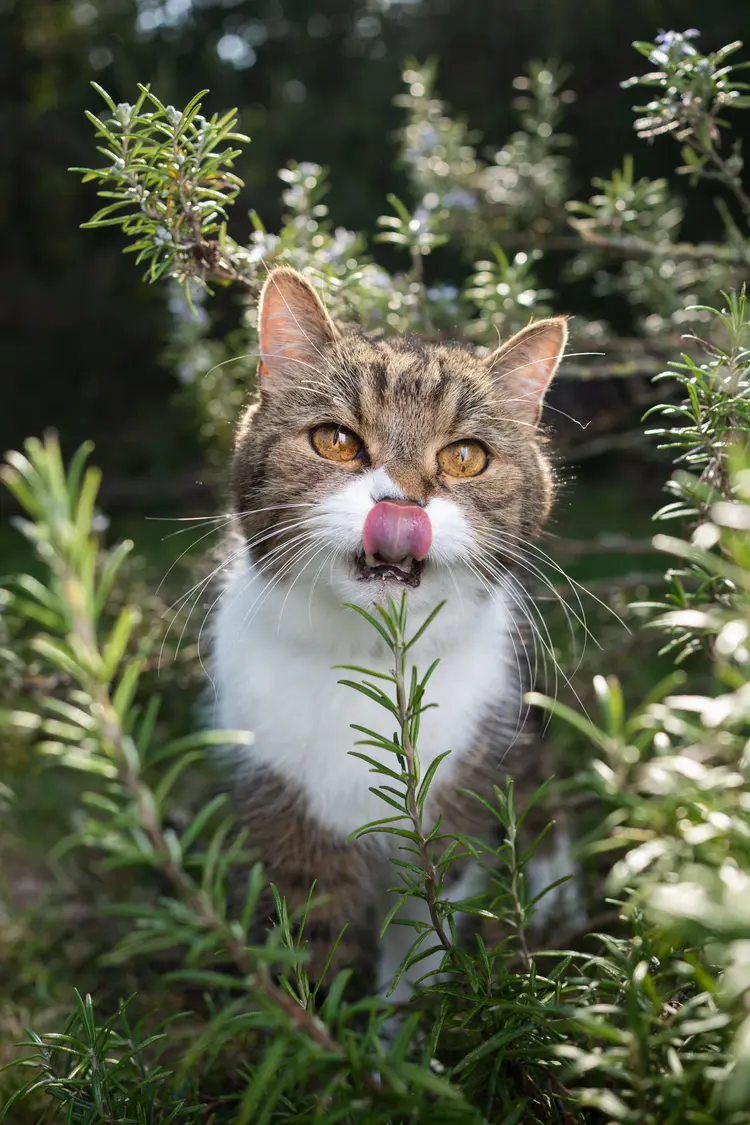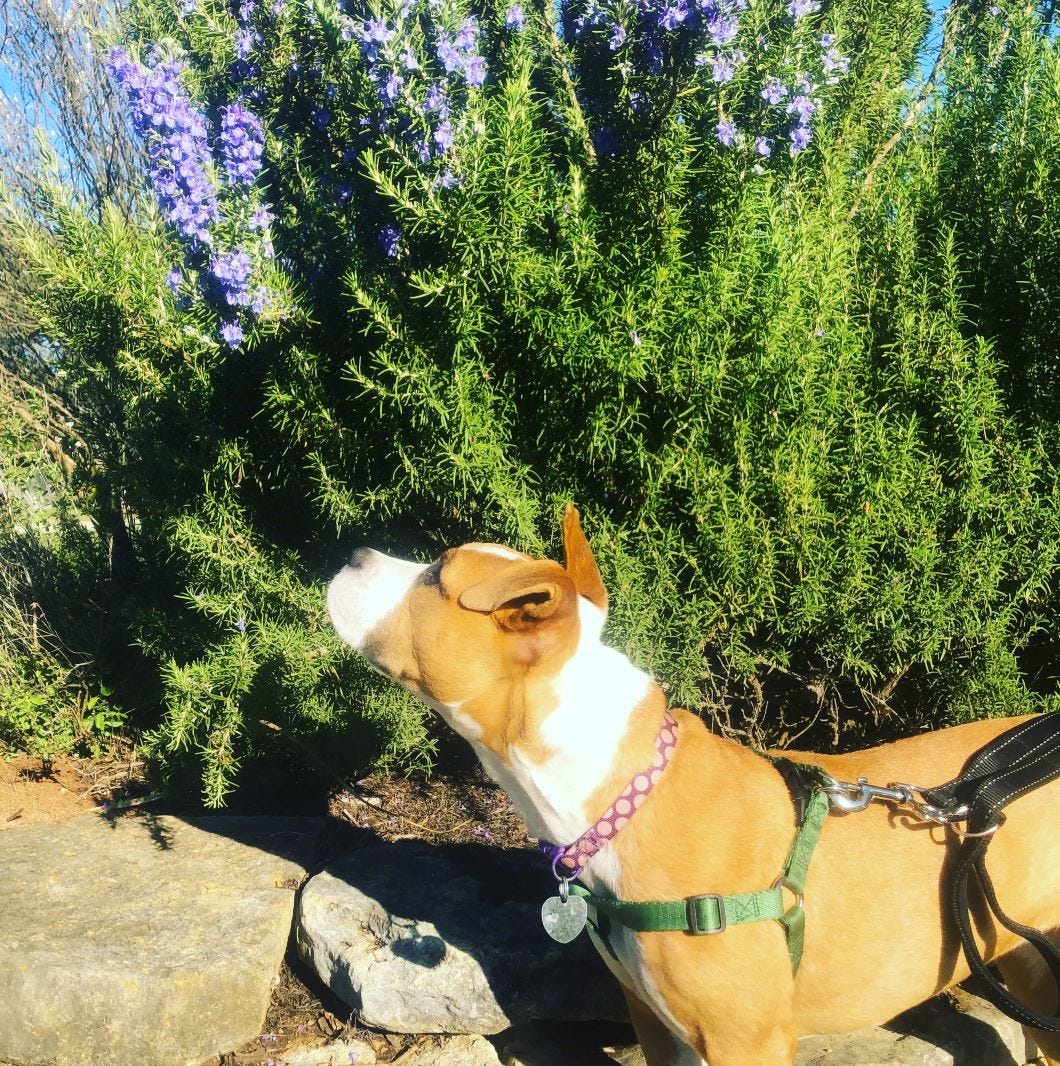Key Takeaways
Rosemary is generally safe for both cats and dogs in small amounts.
Essential oils derived from rosemary can be harmful to pets and should be avoided.
Rosemary has antimicrobial properties and can offer health benefits when used correctly.
Overconsumption of rosemary can lead to digestive issues in pets, such as vomiting or diarrhea.
Always consult your veterinarian before introducing new herbs or supplements to your pet’s diet.
Rosemary and Pet Safety: An Overview
Rosemary, known scientifically as Rosmarinus officinalis, is a common herb that many of us use in our kitchens. But when it comes to our furry friends, is rosemary safe? Understanding the benefits and risks associated with rosemary can help you make informed decisions about its use around your pets.
Benefits of Rosemary for Pets
Rosemary isn’t just a flavorful addition to your meals; it can also offer several health benefits for pets. This herb is rich in antioxidants, which help combat free radicals in the body. Antioxidants can contribute to a stronger immune system, making your pets less susceptible to illnesses.
Moreover, rosemary has antimicrobial properties. This means it can help fight off bacteria and fungi, making it a natural preservative in some pet foods. Some pet shampoos even contain rosemary because of its ability to repel fleas and ticks.
For dogs, rosemary can aid in digestion and improve memory and mood. These benefits make it a popular ingredient in some commercial dog foods and treats.
Potential Risks of Rosemary for Pets
While rosemary is generally safe, it does come with some risks, especially when consumed in large quantities. The herb contains volatile oils like camphor and linalool, which can cause digestive issues in pets. Symptoms may include:
Upset stomach
Vomiting
Diarrhea
Another risk to consider is the use of rosemary essential oils. These oils are highly concentrated and can be toxic to pets. Ingesting or even inhaling essential oils can lead to severe health issues, including respiratory problems and seizures.
Safe Usage Guidelines for Pet Owners
If you want to incorporate rosemary into your pet’s life, it’s crucial to do so safely. Here are some guidelines:
Use fresh or dried rosemary sparingly in your pet’s food.
Avoid rosemary essential oils and any products containing them.
Monitor your pet for any adverse reactions when introducing rosemary.
Consult your veterinarian before adding new herbs or supplements to your pet’s diet.
By following these guidelines, you can ensure that your pet enjoys the benefits of rosemary without the associated risks.
“Is Rosemary Toxic to Cats? | Spot®” from spotpet.com and used with no modifications.
Safety of Rosemary for Cats
When it comes to cats, the question of rosemary’s safety becomes even more critical. Cats have unique digestive systems and are often more sensitive to various substances than dogs.
Effects of Rosemary on Cats
Generally, rosemary is non-toxic to cats. The American Society for the Prevention of Cruelty to Animals (ASPCA) lists rosemary as a safe plant for cats. However, this doesn’t mean you should let your cat consume large amounts of it. Small quantities can offer some benefits, but overconsumption can lead to digestive issues.
Can Cats Eat Rosemary?
Yes, cats can eat rosemary, but in moderation. Offering your cat a small sprig of fresh rosemary or a pinch of dried rosemary can provide some enrichment and even some health benefits. However, it’s essential to observe how your cat reacts. If you notice any signs of digestive upset, discontinue use immediately.
Warning Against Rosemary Essential Oils for Cats
One crucial point to remember is that rosemary essential oils are not safe for cats. Cats lack certain enzymes in their liver that are necessary to metabolize essential oils, making them highly toxic. Inhaling or ingesting rosemary oil can cause symptoms ranging from drooling and vomiting to more severe issues like respiratory distress and seizures.
If you suspect your cat has been exposed to rosemary essential oil, seek veterinary attention immediately. Quick action can make a significant difference in your pet’s recovery.
Safety of Rosemary for Dogs
Just like with cats, rosemary is generally safe for dogs. In fact, many dog food manufacturers include rosemary as a natural preservative due to its antimicrobial properties. However, it’s essential to understand how dogs react to rosemary and the potential benefits and risks involved.
How Dogs React to Rosemary
Most dogs tolerate rosemary well when it’s included in their diet in small amounts. Dogs have a more robust digestive system compared to cats, which allows them to process a variety of herbs and plants more efficiently. However, it’s still crucial to monitor your dog for any signs of digestive upset, such as vomiting or diarrhea, especially when introducing rosemary for the first time.
Health Benefits of Rosemary for Dogs
Rosemary offers several health benefits for dogs. It contains antioxidants that help boost the immune system, making your dog less susceptible to infections and diseases. Additionally, rosemary’s antimicrobial properties can help maintain a healthy gut flora, aiding in digestion and reducing the risk of gastrointestinal issues.
Moreover, rosemary has been shown to improve memory and mood in dogs. This can be particularly beneficial for older dogs experiencing cognitive decline. The herb can also help reduce inflammation, making it a useful addition for dogs with arthritis or other inflammatory conditions. For other pet-safe plants, consider sweet alyssum.
Precautions When Feeding Rosemary to Dogs
While rosemary is beneficial, it’s essential to use it in moderation. Overconsumption can lead to digestive issues and other health problems. Here are some precautions to keep in mind: Ensure that the rosemary you use is not toxic to dogs and always consult with your vet before introducing new herbs into your pet’s diet.
Introduce rosemary gradually into your dog’s diet to monitor for any adverse reactions.
Avoid using rosemary essential oils, as they are highly concentrated and can be toxic to dogs.
Consult your veterinarian before making any significant changes to your dog’s diet.
By following these precautions, you can safely incorporate rosemary into your dog’s diet and enjoy its health benefits without the risks.
Rosemary Scent and Its Impact on Pets
The scent of rosemary is pleasant to many humans, but how does it affect our pets? Understanding the impact of rosemary’s aroma on cats and dogs can help you use it safely in your home.
Is Rosemary Scent Harmful to Cats?
Cats have a highly developed sense of smell, which makes them more sensitive to strong scents, including rosemary. While the scent of rosemary is not inherently harmful to cats, prolonged exposure can cause stress and discomfort. It’s best to use rosemary sparingly and ensure that your cat has a way to escape the scent if it becomes overwhelming. For more information on pet-safe plants, check out this guide on pet-safe evergreen shrubs.
Is Rosemary Scent Harmful to Dogs?
Dogs also have a keen sense of smell, but they generally tolerate the scent of rosemary better than cats. However, it’s still important to use it in moderation. If you notice any signs of discomfort, such as sneezing or excessive scratching, it may be best to remove the source of the scent.
Safe Aromatherapy Practices with Pets
If you enjoy using rosemary for its aromatic properties, there are ways to do so safely around your pets. Here are some tips:
Use rosemary essential oils in a well-ventilated area to prevent overwhelming your pets.
Keep essential oils out of reach to avoid accidental ingestion.
Observe your pets for any signs of discomfort and discontinue use if necessary.
By following these practices, you can enjoy the benefits of rosemary aromatherapy without compromising your pets’ well-being. For more information on non-toxic plants for dogs, visit our guide.
Feeding Rosemary to Other Animals
Besides cats and dogs, other pets might also encounter rosemary. It’s important to know which animals can safely consume rosemary and the potential benefits it offers.
Animals That Can Safely Consume Rosemary
Several small animals, such as rabbits, guinea pigs, and hamsters, can safely consume rosemary in moderation. These animals often benefit from the herb’s antimicrobial and antioxidant properties, just like cats and dogs. However, it’s crucial to introduce rosemary gradually and observe for any adverse reactions.
Other animals that can safely consume rosemary include birds like parrots and certain reptiles. These animals can enjoy the herb’s health benefits when it’s added to their diet in small amounts. Always ensure that the rosemary is fresh or dried and free from any pesticides or chemicals.
Health Benefits for Other Small Animals
Rosemary can offer several health benefits for small animals, including:
Boosting the immune system with its antioxidant properties.
Aiding in digestion and maintaining a healthy gut flora.
Reducing inflammation and improving overall well-being.
For instance, rabbits can benefit from rosemary’s anti-inflammatory properties, which can help alleviate symptoms of arthritis or other inflammatory conditions. Guinea pigs, on the other hand, may experience improved digestion and a stronger immune system.
As always, consult your veterinarian before adding rosemary to your small pet’s diet to ensure it’s appropriate for their specific needs. This step is crucial to avoid any potential health risks and to tailor the herb’s benefits to your pet’s unique requirements. For more information on pet-safe plants, check out asters are safe for pets.
Quantity and Forms of Rosemary Safe for Consumption
When feeding rosemary to pets, the quantity and form of the herb are essential factors to consider. Fresh and dried rosemary are generally safe, but it’s important to use them sparingly. A small sprig of fresh rosemary or a pinch of dried rosemary is usually sufficient for most pets.
For small animals like rabbits and guinea pigs, a tiny piece of fresh rosemary or a small sprinkle of dried rosemary added to their food once or twice a week is adequate. For cats and dogs, you can mix a small amount of dried rosemary into their food, but always monitor for any adverse reactions. If you’re looking for other pet-safe plants, consider forsythia as it is not toxic to dogs.
It’s crucial to avoid rosemary essential oils, as they are highly concentrated and can be toxic to pets. Stick to fresh or dried forms of the herb to ensure your pet’s safety.
Frequently Asked Questions (FAQ)
Many pet owners have questions about the safety and benefits of rosemary for their pets. Here are some of the most common questions and their answers:
Can pets have allergic reactions to rosemary?
Yes, pets can have allergic reactions to rosemary, although it’s relatively rare. Symptoms of an allergic reaction may include itching, swelling, and difficulty breathing. If you notice any of these signs, discontinue use immediately and consult your veterinarian.
Is dried rosemary safer for pets than fresh rosemary?
Both dried and fresh rosemary are generally safe for pets when used in moderation. However, dried rosemary is more concentrated, so you should use smaller amounts compared to fresh rosemary. Always monitor your pet for any signs of digestive upset or allergic reactions.
What should I do if my pet eats too much rosemary?
If your pet consumes a large amount of rosemary, they may experience digestive issues such as vomiting or diarrhea. In most cases, these symptoms will resolve on their own. However, if your pet shows signs of severe distress or if the symptoms persist, seek veterinary attention immediately.
It’s also a good idea to have the contact information for a pet poison control hotline on hand. They can provide guidance on what steps to take if your pet ingests a potentially harmful substance.
Can rosemary be used as a natural flea repellent for pets?
Yes, rosemary can be used as a natural flea repellent. Some pet shampoos contain rosemary for this reason. However, it’s important to avoid using rosemary essential oils directly on your pet, as they can be toxic. Instead, look for pet-safe products that contain rosemary as an ingredient.
Another option is to create a homemade rosemary rinse by steeping fresh rosemary in boiling water, allowing it to cool, and then using it as a final rinse after bathing your pet. This method can help repel fleas without the risks associated with essential oils.
“Rosemary is considered non-toxic to dogs according to the ASPCA, and it may even have health benefits for your pup.” – American Society for the Prevention of Cruelty to Animals (ASPCA)
In conclusion, rosemary can be a safe and beneficial herb for pets when used correctly. By following the guidelines and precautions outlined in this article, you can ensure that your furry friends enjoy the benefits of rosemary without the associated risks. Always consult your veterinarian before introducing new herbs or supplements to your pet’s diet to ensure their safety and well-being. For more information, you can read about whether cats can eat rosemary on Chewy.







